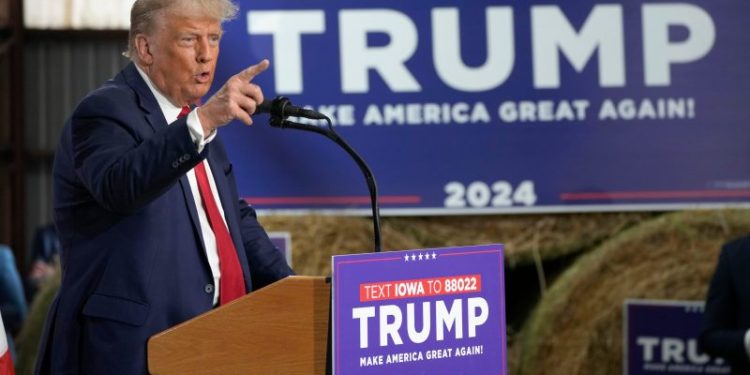“Experts Slam GOP for Striking Out at Student Protestors – Free Speech in Jeopardy
The Republican Party intends to revoke visas of international student protesters, a move which experts argue will severely violate the students’ right to free speech.
The proposed policy was introduced by Republican senators Tom Cotton and Chuck Grassley as part of their larger “Government Accountability Package”. The package aims to modify the federal law governing visa issuance, introduction, and denial standards.
Under the new law, international students protesting on American soil would be deemed ineligible for a visa. To lose the visa, students must be found guilty of “substantial and sustained disruption of the functioning of an institution” or provoking a “material and substantial disruption of speech rights.”
Experts argue that such a policy could be easily manipulated in order to remove students from the country based on political motivations. Moreover, the vague language of the law could lead to a complete suppression of free speech regardless of the protest’s legality.
“By attaching the threat of visa revocation to protest, this proposed policy undermines the safety of students who wished to voice their opinions on a range of issues,” said Thomas Abt, a Harvard Kennedy School professor and former Obama advisor on criminal justice policy.
Additionally, some believe that revoking student visas would also be discriminatory towards foreign students of color.
“These policies are part of a larger strategy to target and repress activists who create change in our nation and brazenly violate the free speech rights of communities of color,” said Amita Swadhin, the executive director of Mirror Memoirs, a digital media project that focuses on women of color’s struggles against misogyny and racism.
The proposed policy has already been met with bipartisan opposition, with many individuals speaking out against it.
“Any policy which limits student protest – a cornerstone of our nation’s conversation – is unconstitutional and fundamentally un-American,” said former Senator Mark Begich.
In the end, the passage of this policy threatens not only the Constitutional right to protest for foreign students, but also the larger conversation of free speech in the United States as a whole.
The Republican Party intends to revoke visas of international student protesters, a move which experts argue will severely violate the students’ right to free speech.
The proposed policy was introduced by Republican senators Tom Cotton and Chuck Grassley as part of their larger “Government Accountability Package”. The package aims to modify the federal law governing visa issuance, introduction, and denial standards.
Under the new law, international students protesting on American soil would be deemed ineligible for a visa. To lose the visa, students must be found guilty of “substantial and sustained disruption of the functioning of an institution” or provoking a “material and substantial disruption of speech rights.”
Experts argue that such a policy could be easily manipulated in order to remove students from the country based on political motivations. Moreover, the vague language of the law could lead to a complete suppression of free speech regardless of the protest’s legality.
“By attaching the threat of visa revocation to protest, this proposed policy undermines the safety of students who wished to voice their opinions on a range of issues,” said Thomas Abt, a Harvard Kennedy School professor and former Obama advisor on criminal justice policy.
Additionally, some believe that revoking student visas would also be discriminatory towards foreign students of color.
“These policies are part of a larger strategy to target and repress activists who create change in our nation and brazenly violate the free speech rights of communities of color,” said Amita Swadhin, the executive director of Mirror Memoirs, a digital media project that focuses on women of color’s struggles against misogyny and racism.
The proposed policy has already been met with bipartisan opposition, with many individuals speaking out against it.
“Any policy which limits student protest – a cornerstone of our nation’s conversation – is unconstitutional and fundamentally un-American,” said former Senator Mark Begich.
In the end, the passage of this policy threatens not only the Constitutional right to protest for foreign students, but also the larger conversation of free speech in the United States as a whole.










